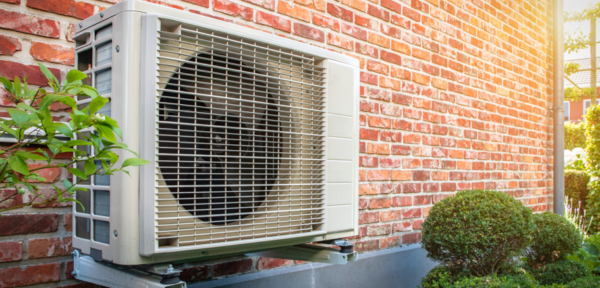The Future of Home Heating.

With the 2025 Future Homes Standard requiring new build homes to produce 75-80% less carbon emissions and likely to prohibit the installation of gas boilers, it is evident we will have to change how we heat our homes. However, with 83% of homes currently relying on mains gas for heating this change will not be easy.
Electric heat pumps are currently the Government’s preferred green heating technology, thanks to their impressive efficiency of some 200-400%. This is two to four times that of electric storage heaters and even the most efficient gas boilers.
The Government have recognised the ability of heat pumps to reduce space heating emissions, setting a target to deploy 600,000 heat pumps per year by 2028. Progress towards this target is being made, with heat pump installation rates increasing by 28% in 2021. Industry player, Redrow have announced that soon they will be fitting heat pumps as standard in all their new homes.
But despite this progress, there is more to be done, with it being estimated that only 60,000 heat pumps were installed in 2021, and the UK having the lowest adoption rates in Europe.
Due to their large housing stocks, social housing landlords and housing associations are in a unique position to help increase the rate of uptake. Widespread support by these stakeholders could significantly increase installation rates and open the market to smaller private landlords and individual homeowners who would benefit from the ensuing economies of scale.
With social housing standards being updated to require lower carbon emissions, heat pumps offer a key route for housing providers to meet targets. Increasing amounts of renewable generation – for most of January 2023 wind accounted for between 40-60% of grid generation – means that emissions from heat pumps will only drop.
Heat pumps not only offer environmental benefits but potentially economic ones too. With the ongoing volatility of the gas market increasing boiler running costs, heat pumps are nearing and sometimes surpassing running price parity with boilers, depending on operational efficiency levels.
When considering the suitability of a heat pump for a home, it is important to consider the energy performance of the building first. For the best results, the energy efficiency of a property should be maximised before a heat pump is installed, following a ‘fabric first’ approach. This is because the cheapest and greenest energy is that which is not used at all, and moreover if insulation improvements are made after a heat pump is fitted the heat pump’s efficiency can be compromised due to the system being oversized.
The cost of heat pumps can sometimes be reduced when being supplied to multiple neighbouring properties by sharing ground loop systems. This is a service offered by multiple companies, who between them have transitioned many social homes from gas boilers to ground source heat pumps.
Another potential green heating solution is to convert the gas main from methane to hydrogen, or at least to blend the two gases. Ideally, this would be possible without the need to replace existing gas boiler systems. However, emerging studies are suggesting that this is unlikely to be possible for home heating.
Unsurprisingly, giants in the gas industry like Shell and BP are lobbying hard for the use of hydrogen in homes. However, in the shorter term, it does seem that electric heat pumps will be the preferred way for the housing industry to decarbonise its stock.
Sava runs free weekly technical webinars covering subjects such as The Future of Home Heating. You can see upcoming webinars and book your free place on our technical webinars page.